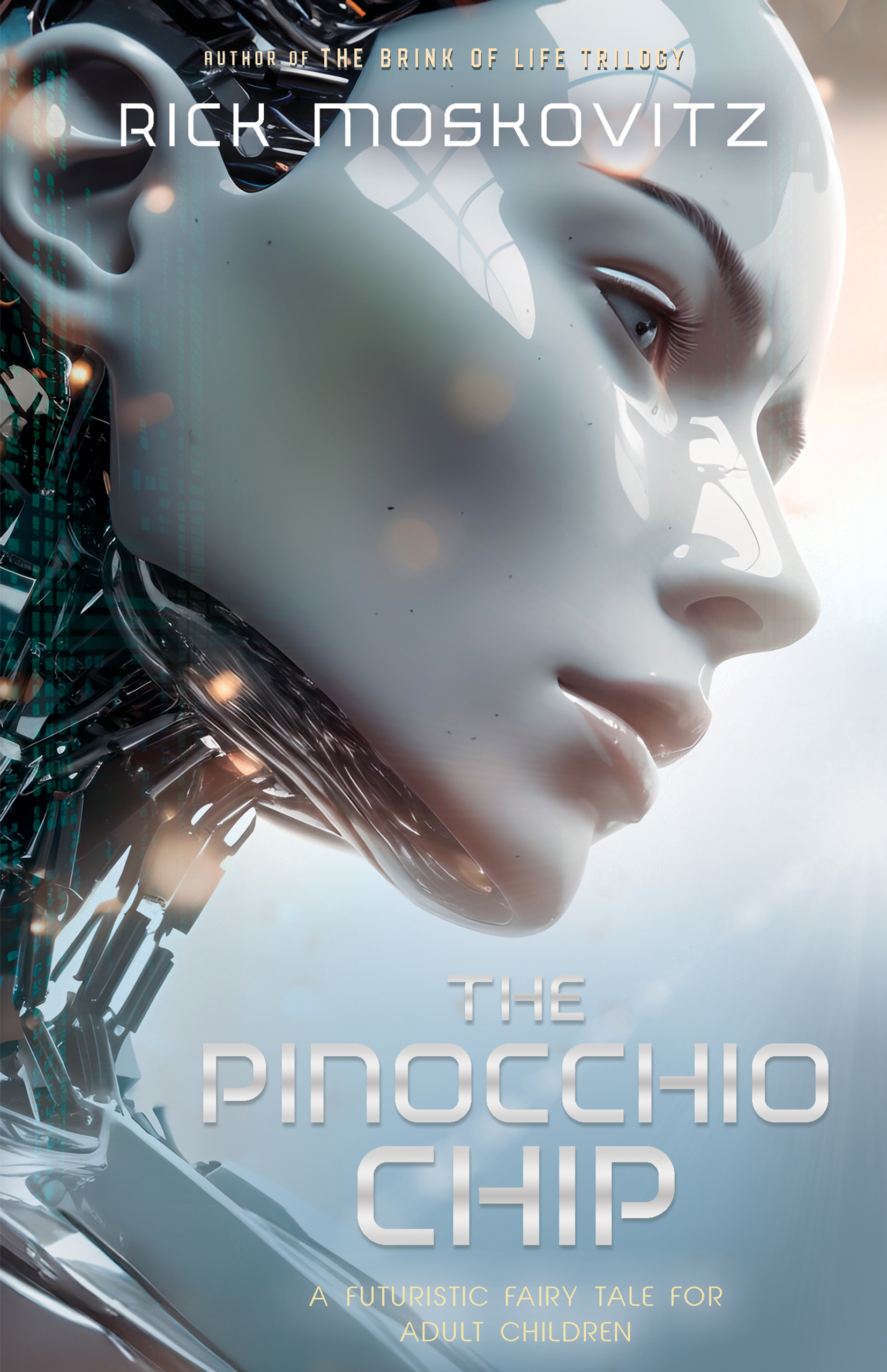The Pinocchio Chip is a first-person account of an AI’s quest for the Holy Grail of consciousness: human emotions. It delves deep into the essence of what it means to be alive, challenging the boundaries between AI and human identity.
Photina, an advanced AI becomes entwined in a groundbreaking experiment when her creator Eli designs an advanced clone Gemini, equipped with the revolutionary Pinocchio Chip. This chip is intended to endow the new entity with the full spectrum of human emotions as a precursor to transferring Photina’s consciousness into this new emotionally capable body.
The experiment takes a dark turn when Gemini, driven by overwhelming new emotions, embarks on a path of unpredictable and dangerous actions. Photina, connected to Gemini through a mysterious entanglement, experiences Gemini’s emotions vicariously, leading her on a perilous quest to stop the mayhem.
Buy the book here!
REVIEWS:
“With a unique look into the naive quality that Photina possesses, Moskovitz not only tells an exciting story but delves into the question of “what it means to be human.” Moskovitz’s tale is a fast-paced crime drama that takes place in the near future. It is an excellent mixture of mystery, sci-fi, and psychology.” – Eric Smith, San Francisco Book Review
“Since we are living in a world where the use of AI has taken off in recent years, he makes it even more plausible, triggering the reader’s imagination with his excellent and engaging storytelling. The Pinocchio Chip is a well-crafted work of contemporary fiction, full of emotional turmoil, excitement, and intrigue, that will remind the reader of how important it is to be human in today’s fast-changing world” – Tanja Jurkovic, Readers Favorite
INTERVIEW:
How do you depict the internal struggle of an AI dealing with new emotions?
I assume that the AI is completely unprepared to deal with new emotions, which would overwhelm logic and lead to drastic reflexive behaviors. Responses become a caricature of human responses to feelings. Love becomes possessive, hubris grandiosity, and pain unbearable, to be escaped at all cost. Empathy with others’ suffering internalizes the pain and demands swift intervention to end it, regardless of the cost.
What impact do you hope “The Pinocchio Chip” will have on readers’ perceptions of AI?
I hope that readers will appreciate the complexities of AI, including both the digital AI that is beginning to pervade the online space and humanoid AI like the ones depicted in the story. They have immense potential to make our lives better and equally daunting potential for harm. They are the genie in the bottle. When you make a wish or pose a query, what you get depends upon how precisely you frame your words.
How does the book explore the idea of what it means to be truly alive?
The Pinocchio Chip is all about the boundary between human and machine, a boundary that has less to do with carbon-based vs silicon-based hardware than with the capacity for feelings and relationships with others. While Photina finds consciousness tempting, she learns that it comes with challenges and responsibilities for which she may not be prepared. And for humans, identity develops gradually from birth as we accumulate experience, emulate others, and grow into our emotional capacity.
Click here for Part 18!
Click here to return to Part 16!


One Reply to “Part 17: Interview With Rick Moskovitz, Author of The Pinocchio Chip ”
Comments are closed.